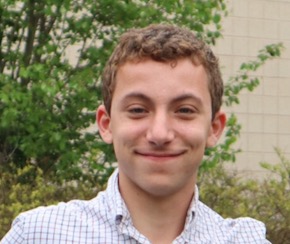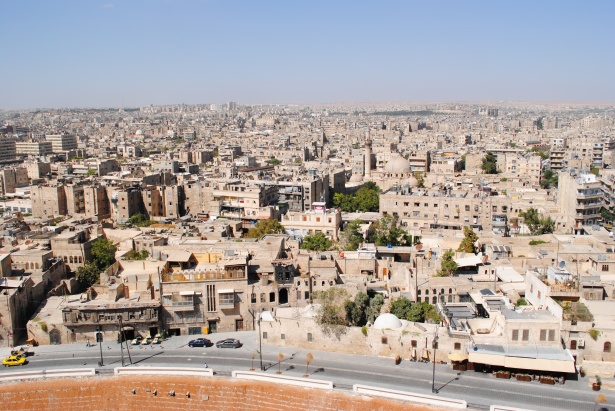The Crisis in Syria: Our Generation’s Never Again Moment – Insight into Omar Alshogre’s story
In recent weeks, two guest speakers came to Harriton to share their stories. Stories of horror, pain, survival, and unforgettable experiences were discussed and explicated upon at this discussion.
Mouaz Moustafa and Omar Alshogre revealed their stories of the ongoing crisis in Syria; Omar shared his experience of survival and overcoming abuse, police brutality, and near-death circumstances.
Having learned English only several months ago, Omar retold his horrific experience in prison with great detail and juxtaposition, forcing the audience to put themselves in his experience and relive what he lived through. At the age of 15, Omar participated in political talks and protests, where he was first thrown into prison for his political views against the Syrian Arab Republic.
Later, at the age of 17, Omar was again arrested, along with his cousins, for their political beliefs and peaceful protesting. Descriptions of how they tortured him were given in full length by Omar: how his nails were forcefully removed, how he was tortured and interrogated, and how Syrian police hung him and his cousins to mutilate and electrocute them.
Worst of all, Omar discussed how he was separated from his cousins and relocated across various prisons, until finally arriving at the worst of all, Sednaya, where he remained until his freedom. Living in a 4’ by 4’ cell, Omar had barely enough space to squat and stand, as he was surrounded by 40-50 other prisoners in one cell. Each day was a battle to survive, and Omar was willing to fight this battle of survival.
Each day he received little to no nourishment, less than a ¼ cup of water, and thus, Alshogre decided to save his rations, trading with others to collect a large stockhold of food. Eventually, he traded and collected enough rations to have a “feast,” a feast that met his wildest dreams.
He dreamt about how he would eat and eat and eat and how he would savor every bite of food he took. Little did he know, as he dreamt about his food, his cellmate–one of his closest friends–would eat all of his food. Terrorized by this action, Omar did not know how to react and sought vengeance for this heinous act; he wished for his friend to die and to pay for stealing his food.
Seeing his reaction, prisoners and other friends within his cell donated food to Omar and helped him regain his “fortune.”
After a short while, prison guards rounded up Omar and his cellmates for their weekly killing and beating; one “volunteer” had to offer his life in order to save the other prisoners, and in this instance, due to the immense guilt Omar’s friend felt from his action, had offered his life to save Omar’s and his other cellmates.
After this, Omar realized the true power in friendship and felt remorse and pain for the death of his friend, even though his food was stolen.
Life in Sednaya was brutal, torturous, and merciless. Guards would rape, beat, and abuse detainees in unimaginable ways, tormenting them and ridiculing them in the process. Omar was forced to count and mark dead bodies in the prison as one of his “jobs,” where he saw his friends and relatives piled up in rooms where they were beaten and tortured.
Weekly executions were common and most prisoners ate or drank blood with every bite of food or sip of water they took. The horrific tragedies occurring in Sednaya, and prisons like it, were retold by Omar in great detail, mesmerizing the audience how he was still able to stand.
According to Omar, each week he looked forward to a certain event: his weekly beating and torture. According to him, this allowed him to get out of the restrictive space in his cell and freely move and stretch his body. He cherished these moments, which “helped him survive through prison as your body needs motion to survive.”
His fellow prisoners also aided in his survival and took care of Omar during his captivity. During his captivity, the rest of his family was killed besides his younger brother and his mother. The remaining survivors of his village fled to Turkey with his mother, who at the time, had connections in Turkey for business.
During his prison experience, Omar suffered from malnutrition and tuberculosis, which made it evidently harder for him to survive. Omar recounted how his tuberculosis actually came to his rescue, when he was threatened by guards to be executed.
His execution was eminent until he proclaimed of how contagious his disease was, allowing enough time for his mother to raise enough money to pay for his freedom. She paid the necessary cost for his bribe and had his younger brother, Ali, rescue him and escort him to Turkey.
He was escorted through Greece and Europe, only to reach the borders of Turkey and be denied entry due to his mother’s inability to recognize him. In Malmo, Omar was able to receive hospitalization and was given the necessary treatments he needed for tuberculosis and malnourishment.
Alshogre then moved to Sweden after receiving the medical attention he needed. There, he and his brother adopted the native language and established new lives and futures. Omar was able to attend high school and graduate to receive his diploma as he stayed with a Swedish foster family.
Once he was fully recovered and integrated into Swedish society, Omar visited his mother and reunited with her and his remaining village members and family.
Now, Omar travels around the Nordics and the United States, lecturing at schools, universities, and has hosted TED Talks and other events. His ability to survive, accompanied by his tuberculosis and the help from his fellow cellmates, allowed him to overcome some of the worst situations a seventeen year old could face, and speak out for the crisis ongoing in Syria.
Omar wants people to remain strong and faithful no matter how bleak the circumstances may be and shares his story as means to convey his message of survival.
Thanks to Omar, millions of people are able to learn about the horrific conditions that occur in Sednaya and other Syrian prisons for political prisoners. He is an inspiring young man, and hopes that by sharing his story, he can directly assist in efforts to help the Syrian Civil War.
Omar encourages everyone to write letters of hope; these letters, Omar claims, can let Syrians know that they have our support, that they have companions overseas dedicated to helping their cause.

Scott is a current senior and sports editor for the Harriton Banner. Scott is also an active member in the Harriton community. He is a varsity XC athlete,...


